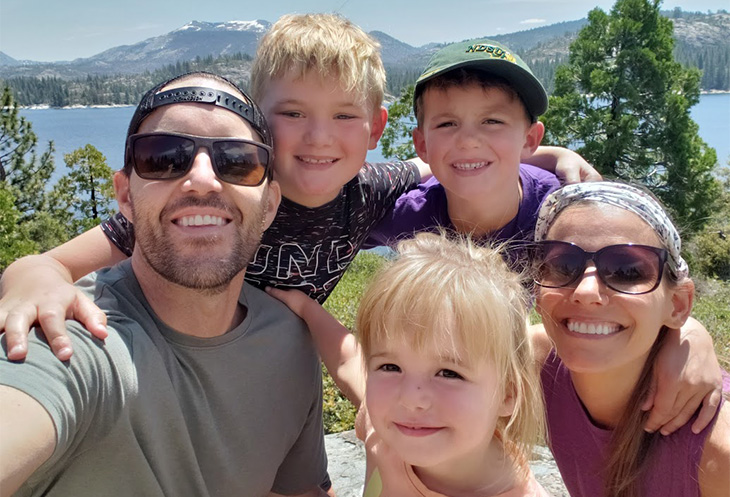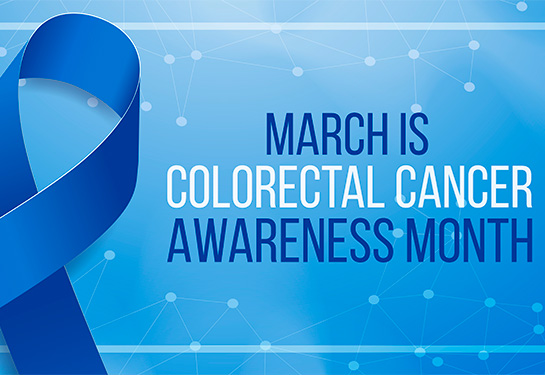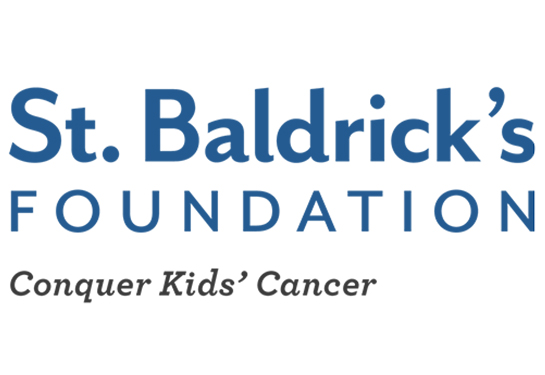Colon and rectal cancer on the rise in young adults
Survivors and concerned physicians promote early detection during Colorectal Cancer Awareness Month
It is National Colorectal Cancer Awareness Month, which focuses on cancer of the colon as well as the rectum. These related, but distinct types of cancer, can differ slightly in symptoms and treatment options. But they have something alarming in common: Both are on the rise among millennials.
Colorectal cancer is now the No. 1 cause of cancer death for men under 50 and the No. 2 cause of cancer death in women in that age group. If you were born between 1981-1996, you face twice the risk of colorectal cancer as compared to people born in 1950.
As a result of this troubling trend, the U.S. Preventative Services Task Force changed its recommendations in 2021 for people to begin getting colon cancer screenings at age 45 — instead of the previously recommended age of 50.
Experts aren’t sure why there’s an increase in young adults getting colon and rectal cancer. Researchers are exploring factors such as diet, obesity, lack of exercise, tobacco and alcohol use as well as environmental impacts such as exposure to chemicals. Family history also plays a role.
Colorectal cancer is challenging to diagnose
Oncologists worry that when symptoms show up in young adults, they are often brushed off.
“Primary care doctors don’t think of colorectal cancer in younger patients who are commonly diagnosed instead with inflammatory bowel disease,” said UC Davis Comprehensive Cancer Center oncologist Rashmi Verma. “If an at-home test is prescribed and results come back negative, but symptoms continue, tell your doctor you want a colonoscopy.”
Such was the case of a 40-year-old Carmichael mother of three who pushed for answers even when results from her at-home colorectal cancer detection kit indicated she didn’t have cancer.
After several trips to the doctor in 2022, and a long wait to schedule a colonoscopy, Kasey (who asked to be identified only by her first name) finally received the answer she was seeking.
Unfortunately, it was the news no one wants to hear: Not only was it cancer, but it was stage 3 rectal cancer, meaning an advanced case of the disease.
“My husband and I were in shock,” said Kasey, a healthy, young adult whose children at the time were 2, 5 and 7 years old.
Along with raising a busy family, Kasey was also a corporate recruiter. Still, she knew her health was important. She kept to a healthy diet and an exercise routine, which included yoga, running and hiking with her family.
“If colorectal cancer can happen to me, it can happen to anyone.” Kasey said, adding that there is no history of colorectal cancer in her family.

Unrelenting symptoms
“I knew something was wrong,” Kasey said. “I had the need for bowel movements frequently, perhaps as many as 10 times a day, blood was present and there was pain in the region.”
Verma explained that because the rectum is in the lower part of the colon, patients feel more urgency and pressure in the rectal area as well as soreness. In comparison, colon cancer symptoms usually include abdominal pain, weight loss, and bowel obstruction.
Kasey said the soreness continued to worsen. At first, her primary doctor thought she had irritable bowel syndrome or internal hemorrhoids, but when her pain intensified, she became convinced she needed to insist on answers.
“If your symptoms don’t stop, don’t give up. You are your own best advocate,” Kasey said. "I continued to research what could be wrong while experimenting with different diets and other remedies. When these experiments didn't work, I was adamant with my care team something else was going on. They ordered a colonoscopy, which finally identified the issue.”
Treatment began immediately
Kasey was told she’d probably need surgery but, after four months of chemotherapy followed by six weeks of radiation, overseen by radiation oncologist Arta Monjazeb, she received the welcome news that her tumor was gone.
Instead of surgery, she was placed on a close-monitoring protocol called watch and wait.
“We have seen a significant change in the management of rectal cancer in the last decade and in a proportion of these patients, putting down the knife is the best thing a surgeon can do,” said Ankit Sarin, chief of the division of colorectal surgery.
Sarin added, “We were able to offer Kasey this partly because, as the only Nationally Accredited Program for Rectal Cancer in the region, our team of multidisciplinary doctors review and follow each patient with rectal cancer using strict accreditation standards, and each patient gets chemotherapy, radiation and, or, surgery specifically tailored for them."
Surgery of the rectum sometimes means the patient must have an ostomy. Whether temporary or permanent, it can have a major impact on their quality of life — especially someone as active as Kasey.
“We are constantly adapting our care based on emerging evidence,” Sarin said. “Shifting chemotherapy to before surgery, adding immunotherapy in select patients and using cell-free DNA technology are all part of this new approach.”
Verma added that, in contrast, with localized colon cancer, the majority of patients require surgery first, followed by chemotherapy or immunotherapy, depending on the tumor/cancer type and extent of the cancer spread.
Kasey said she was able to cope with treatment without taking much time off from work. She also didn’t experience hair loss and felt the energy to keep up with her kids, which she thinks made her cancer treatment less stressful on the family.
“I am so thankful for my colorectal cancer team at UC Davis,” Kasey said. “Dr. Verma, Dr. Monjazeb and Dr. Sarin provided terrific care and I’m grateful the treatment has been successful.”
Related links:
UC Davis Comprehensive Cancer Center
UC Davis Comprehensive Cancer Center is the only National Cancer Institute-designated center serving the Central Valley and inland Northern California, a region of more than 6 million people. Its specialists provide compassionate, comprehensive care for more than 100,000 adults and children every year and access to more than 200 active clinical trials at any given time. Its innovative research program engages more than 240 scientists at UC Davis who work collaboratively to advance discovery of new tools to diagnose and treat cancer. Patients have access to leading-edge care, including immunotherapy and other targeted treatments. Its Office of Community Outreach and Engagement addresses disparities in cancer outcomes across diverse populations, and the cancer center provides comprehensive education and workforce development programs for the next generation of clinicians and scientists. For more information, visit cancer.ucdavis.edu.




